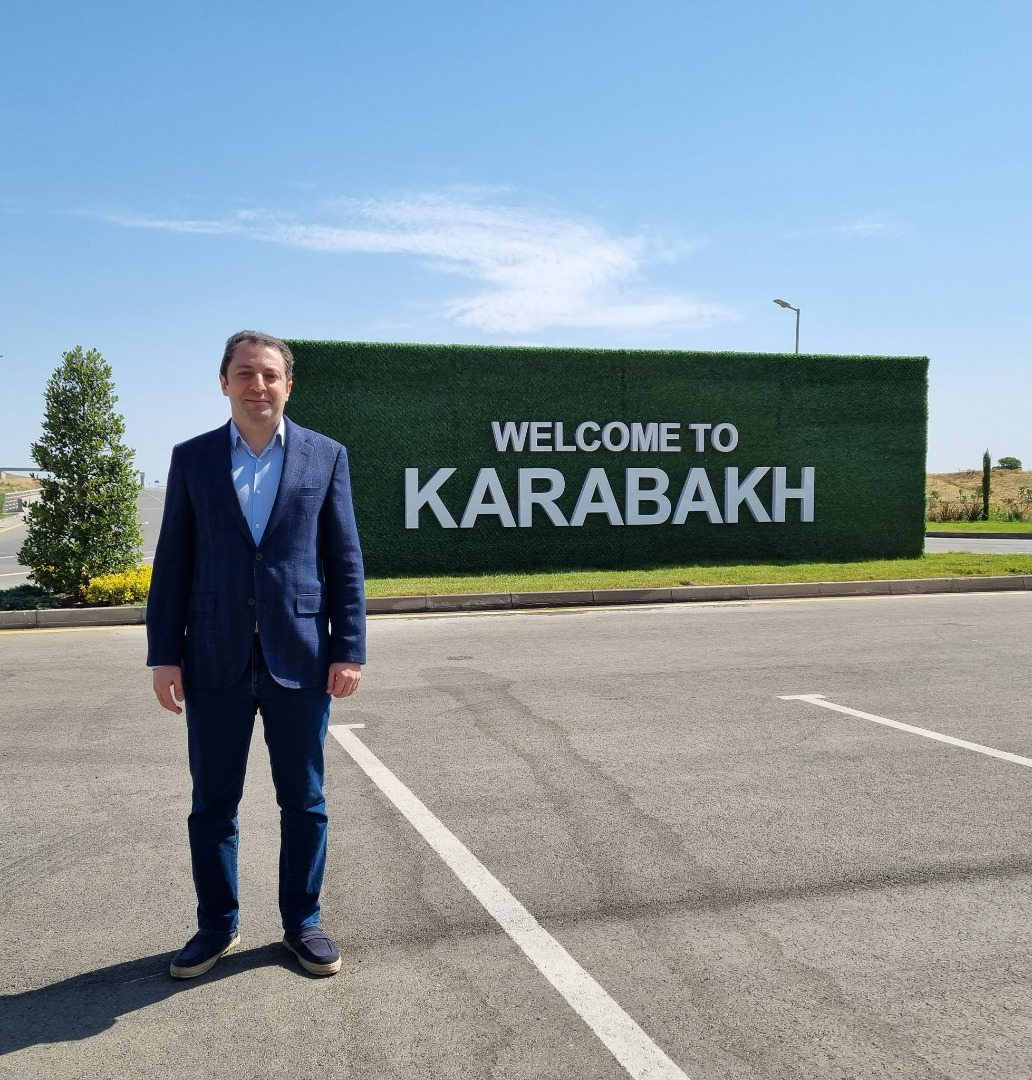KUALA LUMPUR, July 15 (NNN-Bernama) — Azerbaijan welcomes the Malaysian business community to invest in projects in the liberated Karabakh, said its Deputy Foreign Minister Elnur Mammadov.
The deputy minister listed renewed energy, construction of roads, railroads, highways, schools, hospitals, bridges, houses as well as agriculture as potential areas of investment in Karabakh.
He said Malaysian companies could also look into the possibility of investing in the textile and tobacco industries.
Speaking to reporters on Thursday at a press conference at the Azerbaijan embassy in Malaysia here, Mammadov said President Ilham Aliyev had decided that only friendly countries which had supported Azerbaijan’s sovereignty and territorial integrity in its conflict with Armenia participate and invest in these projects – and Malaysia is one of the countries in this list.
“Azerbaijan appreciates Malaysia’s just stand on the issue of Karabakh,” he said.
Mammadov is here as part of his trip to Southeast Asian countries. He explained that his visit is an opportunity to reinvigorate Baku-Kuala Lumpur relations following the many restrictions brought about by the COVID-19 pandemic and to explore ways to enrich the existing bilateral relations where both countries will celebrate the 30th anniversary of their diplomatic relations next year.
Azerbaijan ambassador to Malaysia Irfan Davudov was also present at the press conference.
Mammadov said the Azerbaijani government is undertaking restoration and reconstruction works in the territories liberated during its 44-day war with neighbouring Armenia.
The conflict between Azerbaijan and Armenia started in 1988 – three years before the dissolution of the Soviet Union in 1991 – following Armenia’s illegal and groundless claims against the country.
And in 1992, war broke out between the two former Soviet states, resulting in Armenia’s occupation of 20 per cent of Azerbaijan’s internationally recognised territory, including the mountainous part of Karabakh and seven surrounding districts, and also resulted in one million Azerbaijani becoming refugees and Internally Displaced People (IDP).
The Second Karabakh War, which erupted on Sept 27, 2020, resulted in Azerbaijan liberating all of its occupied lands. The two countries signed a Russian-brokered agreement on Nov 10, 2020, to end the fighting and work towards the signing of a comprehensive peace agreement.
The deputy minister said that many of the areas under almost three decades of occupation resulted in the huge destruction of cultural and religious buildings as well as public buildings such as schools, hospitals, residential buildings, and other infrastructure.
Mammadov explained that the Azerbaijani government had invested some US$1.3 billion on various projects in the liberated Karabakh and between US$1.3-US$1.5 billion allocated for 2022, adding that high oil and gas prices increased the country’s revenue and thus more capacity to spend for the restoration and reconstruction of liberated Karabakh.
Among the projects completed are the Fuzuli International Airport, while construction works are ongoing at Zangilan and Lachin airports.
Mammadov further said that companies from Turkiye, China, Japan, the United Kingdom, Israel, and Russia have so far invested in various projects in the liberated Karabakh.
He said Azerbaijan has identified about 25 projects for potential Malaysian investors.
Going into the details on the opportunities in the renewal energy sector, the deputy minister pointed out that currently, renewable energy’s share in the installed electricity production in Azerbaijan is only about 17 per cent, and the government is targeting for it to reach 30 per cent by 2030.
He said Azerbaijan strives to be a regional renewable energy hub. Mammadov said the power of the Caspian Sea offshore wind is also a huge potential to be tapped.
Another area in which Azerbaijan sees a possibility of cooperation with Malaysia is the restoration or construction of mosques destroyed during the occupation.
Mammadov pointed out that Azerbaijan not only shares the same ‘Ummah’ values with Malaysia but also cooperates closely in the international arena such as through the Non-Aligned Movement (NAM) – which Azerbaijan now chairs – and the Organisation of Islamic Cooperation (OIC).
Replying to a question, he agreed that there is a lack of awareness among the peoples of the two countries about each other, adding that this can be addressed by having more investment and trade, enhancing tourism, and educational ties.
Total bilateral trade between Malaysia and Azerbaijan for the period of 2021 amounted to US$77 million.
— NNN-BERNAMA





